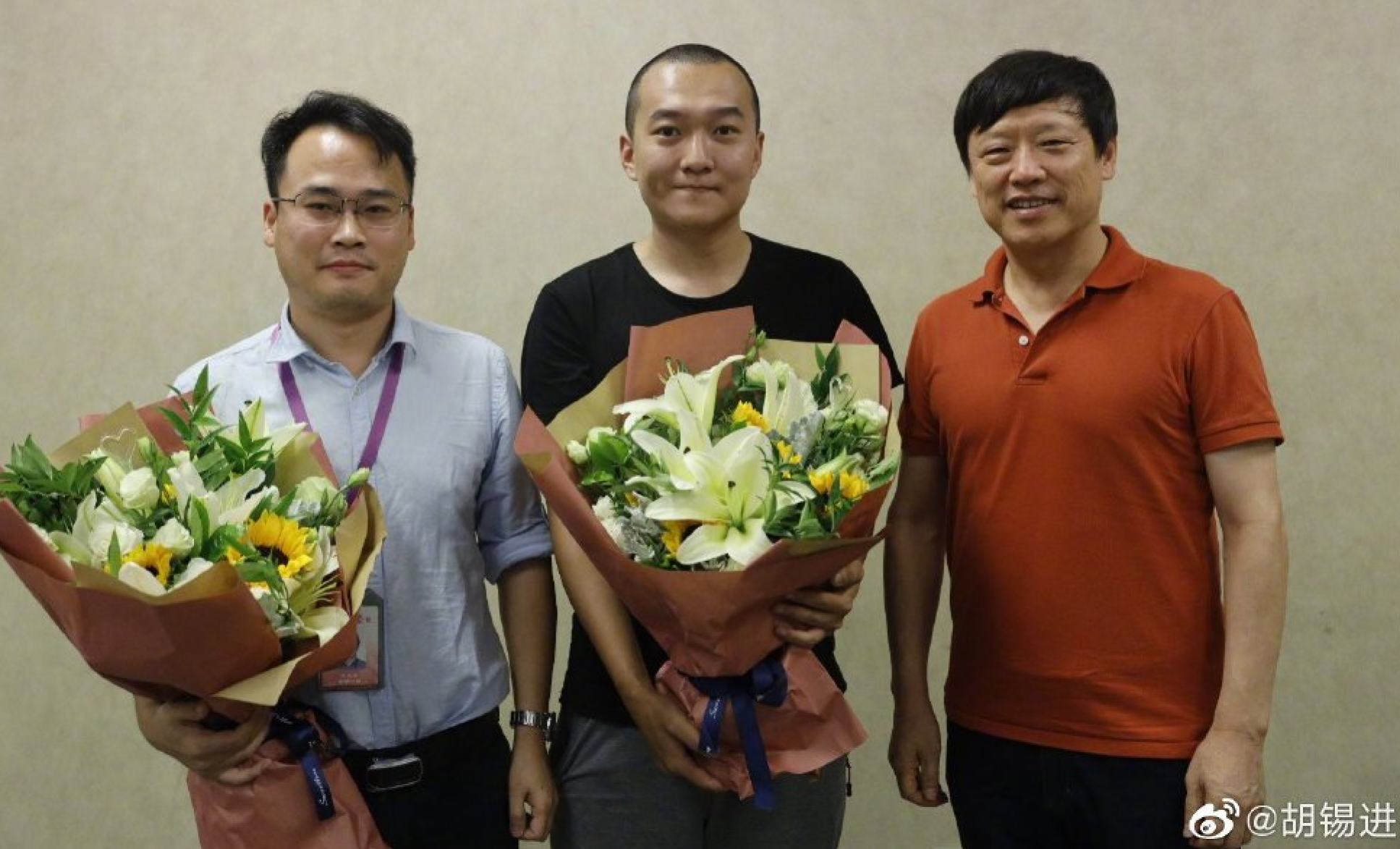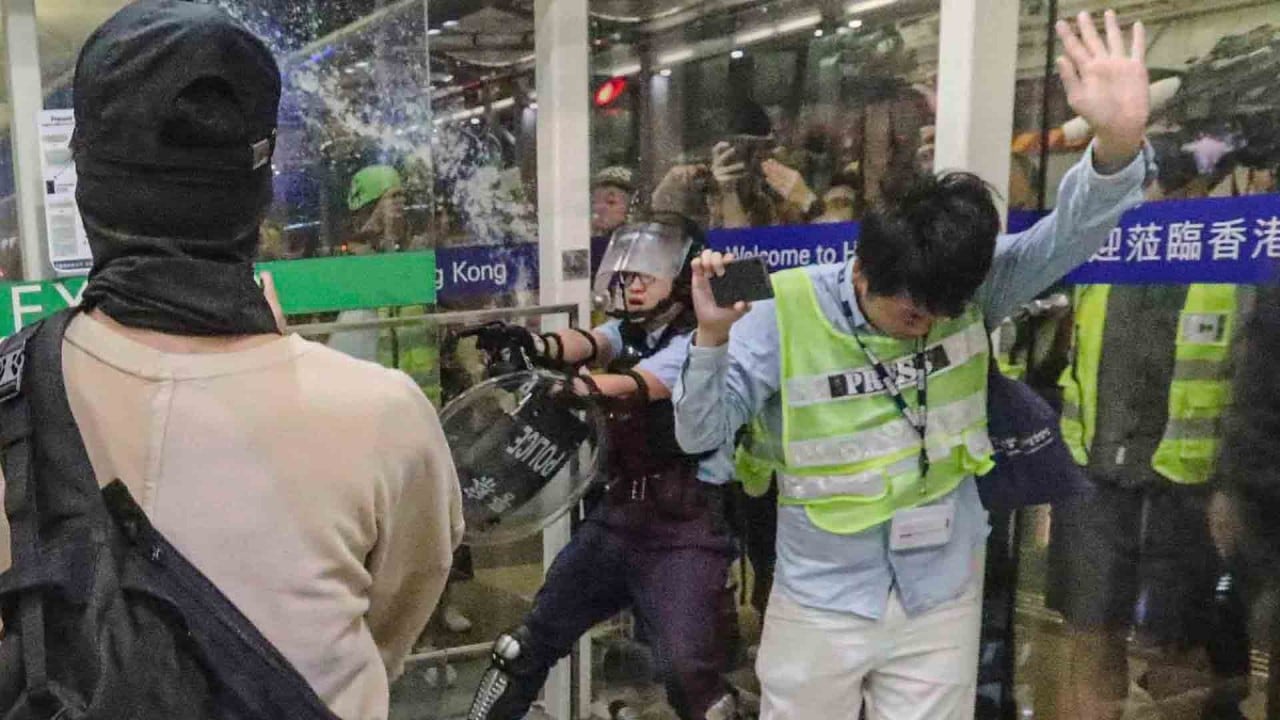
Chinese reporter Fu Guohao, who was beaten by Hong Kong protesters in 2019, died as a result of depression
- Father says Fu died aged 30 in 2021, two years after assault that left his son injured
- Global Times journalist was regarded a ‘patriotic hero’ after being injured while reporting from Hong Kong airport during city protests
“Fu Guohao, the renowned patriotic journalist who loved Hong Kong, died of illness on the evening of October 25, 2021, at the age of 30,” the statement said, adding that his son’s ashes were placed in a cemetery in Tianjin in May.
Confirming the death of his son to the Post on Friday, Fu said it was “a result of depression”, a condition he had struggled with for some time.
Fu said he had delayed revealing his son’s death for more than a year because he was “considering national interests”.
In a later social media post, Fu said he held back the news because he wanted to wait until Hong Kong police had the upper hand in the city, and after last month’s 20th Communist Party congress.
Fu said the assault in Hong Kong, as well as a series of other events which he did not detail had a “domino-like” effect on his son’s mental health.
Fu Guohao was working as a reporter for the Global Times – a nationalistic tabloid affiliated with party mouthpiece People’s Daily – when he was beaten by protesters during their occupation of Hong Kong’s international airport at the height of the anti-extradition turmoil.
“I support Hong Kong police, you can beat me now,” he shouted as protesters tied his hands, interrogated him and searched his belongings on August 13, 2019. A group of protesters then poured water on him, removed his trousers, kicked and punched him, and attacked him with a flagpole.
He was sent to Princess Margaret Hospital and discharged around noon the next day, after he was treated for a slight concussion and soft tissue contusion. The attack also left bruises on his face.
The State Council’s Hong Kong and Macau Affairs Office as well as Beijing’s liaison office in Hong Kong strongly condemned the attack.

Video footage of the attack was widely circulated on mainland social media and Fu was hailed as a patriotic hero by official newspapers, including People’s Daily.
Fu’s “behaviour changed” after he returned to Beijing from Hong Kong in August 2019, according to his father. He stopped interacting with friends and colleagues and was later diagnosed with depression and started taking long stints of sick leave.
In April 2021 he resigned from Global Times because of his “economic situation and physical condition”, his father said.



